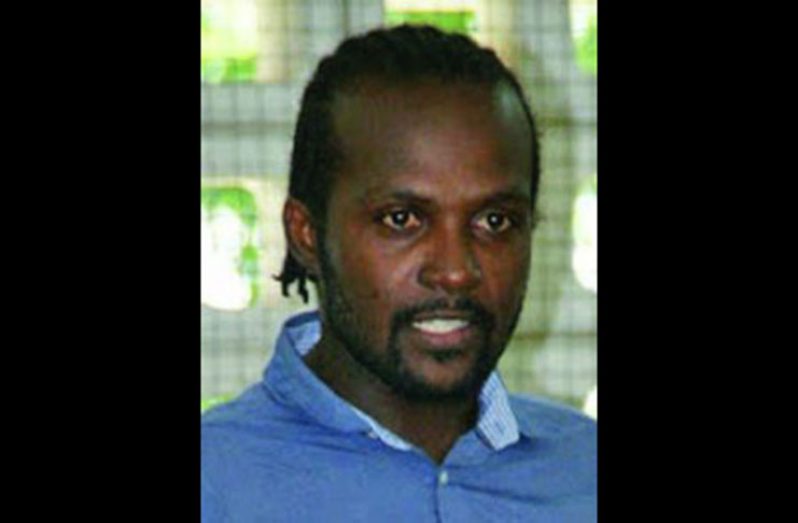…TIGI urges new method to select GECOM chair
…slams Jagdeo for submitting ‘defective’ list
TRANSPARENCY Institute Guyana Incorporated (TIGI) on Monday urged that a new formula be created to select the chairperson of the Guyana Elections Commission, even as it slammed Opposition Leader, Bharrat Jagdeo for submitting names knowing full well they would have been rejected by the President.
In a lengthy statement, TIGI said, “The Leader of the Opposition has not helped democracy either by selecting some persons who would have been clearly unacceptable to the President. By so doing, he would also have engendered a substantial amount of distrust about any of the persons he submitted.”
The local transparency body said too, that the President’s appointment of Justice (ret’d) James Patterson as GECOM’s chairman without giving a reason/s for his rejection of the Opposition Leader’s nominees, “is not a progressive step for Guyana both with respect to democratic principles and accountability.” Justice Patterson’s appointment has sparked much debate and TIGI believes that the move by the President has created a precedent that will be “convenient when it is and inconvenient when it is not.” “The activation of such vagaries in the process of filling the post that might be considered the custodian of our democracy is indeed a grave consequence,” TIGI noted, while stressing that there is much room for the matter to be resolved before the court, pointing to areas of the law which can be deemed grey areas.
The transparency watchdog called upon both the government and opposition along with civil society to etch out a different formula for the selection of the chairman of GECOM. “We are well aware that there have been calls throughout the years since it was first applied to replace it. We wish to remind that the formula was agreed for single use only,” the statement said, while noting that GECOM’s chairman can be regarded as the proximate custodian of the country’s democracy, of which elections are one of the most important components.
“It is imperative that the appointment of the Chairman who presides over elections and elections processes observe and adhere to the highest standards of transparency and accountability. TIGI also believes that the selection and appointment of the Chair would be best done within a framework and in a manner that inspire confidence in the office of the Chair, and in the processes and results of elections.”
Pointing to the country’s political history, TIGI said the problems of the past, more specifically charges of rigged elections under the two main political parties, the PPP and the People’s National Congress (PNC), is not a desirable outcome. “The centrality of the role of the Chair to the health of the elections processes in general is well recognised. Hence, missteps in and deliberate distortions of any part of the appointment process is something that should worry all Guyanese,” the statement said.
Moreover, TIGI believes that apart from the requirements of the Constitution, it is essential that both the President and the Leader of the Opposition always put the interest of Guyana above political maneuvering in the appointment of the GECOM chair. “This appointment ought always to be done in a manner that contributes positively to the shoring up of democratic norms and to nation building,” the TIGI statement said. The body opined that “if the President can, in his own deliberate judgment, reject the list submitted by the Leader of the Opposition,q then unilaterally and lawfully appoint the Chair of GECOM, the law itself might be undemocratic and upholding democracy would therefore be left to the principles, values and beliefs of the individuals involved in the process.”
That aside, TIGI said it participated in the consultations with civil society hosted by the Opposition Leader, though it made no recommendations. “The Leader of the Opposition having selected from the names recommended to him was able to achieve at least the appearance of inclusiveness, though TIGI believes that some of the recommendations submitted were outrageous and meant only to exclude other more reasonable names from among those submitted by civil society, because they were unacceptable to the Leader of the Opposition. This is politics at play, but some argue that the Leader of the Opposition was within his right to make those submissions,” TIGI stated.
The transparency body noted that President Granger facilitated the Opposition Leader’s submission of three lists, but opined that the question about whether or not both the President and the Leader of the Opposition acted unconstitutionally, in relation to requesting and submitting three lists of nominees is relevant. TIGI believes that the matter should be addressed by the court while making the point that President Granger honoured the principle of inclusion by the entertainment of three submissions after rejecting the first one.
“In spite of all this, the final outcome was and is an undemocratic one, this stands regardless of whether or not one believes that the Leader of the Opposition forced the hands of the President by deliberately stacking the lists submitted with names that he knew would have been more acceptable to him than to the President. We say this from the perspective that democracy is a process that ensures inclusion without first inspecting the potential result., it added.”
Notwithstanding, TIGI believes that final authority on the matter is the court adding that President Granger should have provided an explanation for his rejection of the lists, though not legally bound to do so. “The President’s refusal to explain the rejection of the individuals in the list is a rejection of accountability… The President’s attitude to accountability is disappointing, TIGI added, while noting that there should be no room for the unilateral appointment of a GECOM Chair.
“That the constitution caters for this is unfortunate and it is something that should be changed. In the meantime, when and where there is disagreement over what the Constitution says about the unilateral appointment of a GECOM Chair by the President, recourse to the court ought to be sought.”



.jpg)








